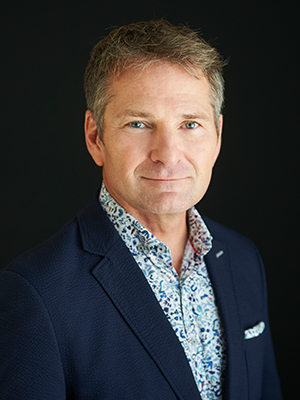Download for offline listening.
Doug Stephens is the Founder and President of Retail Prophet, a retail consultancy, and bestselling author of several books, including his latest called Resurrecting Retail.
Welcome to the Customer First Thinking podcast, Episode 20. My name is Stephen Shaw, the host of this podcast. In this episode we interview Doug Stephens, the renowned retail futurist and bestselling author.
For some time now traditional retailers have been staring down a gun barrel. The pandemic mowed down the weakest retailers in the herd, while pushing consumers who were ecommerce holdouts into the welcoming arms of Amazon. But even prior to this calamity, stores had been shutting down everywhere due to changing shopping habits – pressure on profit margins – the closing down of shopping malls – and blind adherence to an industrial age model that was too reliant on foot traffic.
Even with an expected rebound in consumer spending due to pent-up demand, the future of traditional retail looks bleak. Many more stores are expected to close as online shopping continues its sharp ascent, expected to account for 20% of total retail sales just three years from now. Much of that spending will be soaked up by Amazon and an expanding galaxy of online merchants powered by Shopify and 3rd party online marketplaces. Infinite aisles and same-day delivery have become the bullets in the gun, aimed at the heart of any conventional-thinking retailer whose imagination fails them.
Technology may eventually come to the rescue of those retailers clearsighted enough to see that the old retail model is defunct. The question, of course, is what takes its place. Do retailers look to China for answers, where shopping and buying have become a truly seamless experience due to the convergence of online and offline channels? Or is there a hybrid model better suited to North America where the end-to-end shopping experience involves many multiple channels and a decentralized value chain? Either way, retailers who want to stay solvent better share the same mindset as Jeff Bezos who once said: “If you lean away from the future, the future wins every time”.
Brick-and-mortar stores are unlikely to go away anytime soon. There is still a large role for them to play as the face-to-face stage of the shopping journey. But the mundane store experience of today will need to improve dramatically to draw people away from their screens. Store shopping can still be an enjoyable way to pass the time – still be a gateway to discovery – still be a way to experience a product first-hand – if retailers begin to think differently about what brings shoppers joy and value.
One of the industry oracles retailers can turn to for help in reimagining their business model is Doug Stephens who is a master at predicting consumer and retail trends. The author of several highly readable and provocative books on the state of retail, he offers retailers a clear prescription for survival, warning them of the even more disruptive changes ahead, while providing hope in the form of an alternate vision rooted in putting customers first.
I started by asking Doug whether this was a good or bad time to be a retail futurist.
Doug Stephens: I don’t think there’s ever a bad time, frankly, to be focused on the future. And this is what I suppose is maybe there’s a bigger lesson in that for all companies is that analyzing the future, trying to get a handle on what may happen, building scenarios around the possible outcomes in the future. All too often, it’s something that we do only when we’re doing it under duress. When it seems as though events are sort of pounding the hull of our ship and we sense that we may be about to capsize. That’s when organizations go into future mode and try and understand what’s happening. But it really needs to be a discipline that is built into companies, and it never stops, that you always have someone in the crow’s nest on the lookout for those things on the horizon. And in fact, there’s a good example that I think I touch on briefly in the book around this whole idea that the pandemic was a black swan, that no one could have anticipated that this would happen. Well, there were people in the market that were anticipating that this was going to happen, and Intel happened to be one of them. And ever since 2002-2003, Intel had established a pandemic committee internally. And of course, 2002 was the advent of the SARS epidemic. And ever since SARS they have been monitoring the possibility of another global pandemic and what their response to that ought to be. And so sort of building contingencies in the event of. So this was not a black swan, this was indeed foreseeable, there were companies that were prepared for it, certainly far better than other companies. And so, no, futurism is not a sort of an off or on occupation. And it really should be built into every organization.
Stephen Shaw: It’s almost as though organizations need to build up that muscle internally, whether a retailer, or a packaged goods company, or a telco, for that matter.
